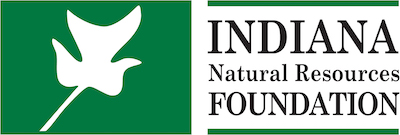Students Discover the Outdoors at Prophetstown State Park

“In every walk with nature, one receives far more than he seeks.” ~John Muir
Learning about nature in a hands-on environment allows students to connect with a world outside of their own. Field trips provide an opportunity for school kids to build on their classroom education and gain a tangible understanding of the subject matter, which can leave an indelible and inspiring mark on a young person’s mind.
The Discover the Outdoors field trip grant program, offered in partnership with Indiana State Parks, encourages public, private, parochial and home school educators to engage students on field trips to an Indiana state park or reservoir. Educators work directly with park staff to develop a curriculum that benefits each child. The naturalists lead students on adventures to explore natural and cultural wonders all Hoosiers have access to, including caves, forests, rivers, lakes, prairies, and so much more.
In May, third graders from Faith Christian School in Lafayette traveled to Prophetstown State Park, thanks to the Discover the Outdoors grant. Their trip began with a visit to the Farm at Prophetstown, which is a 1920s-era farmstead that highlights sustainable agriculture, homesteading, heirloom gardening and farm to table cooking.
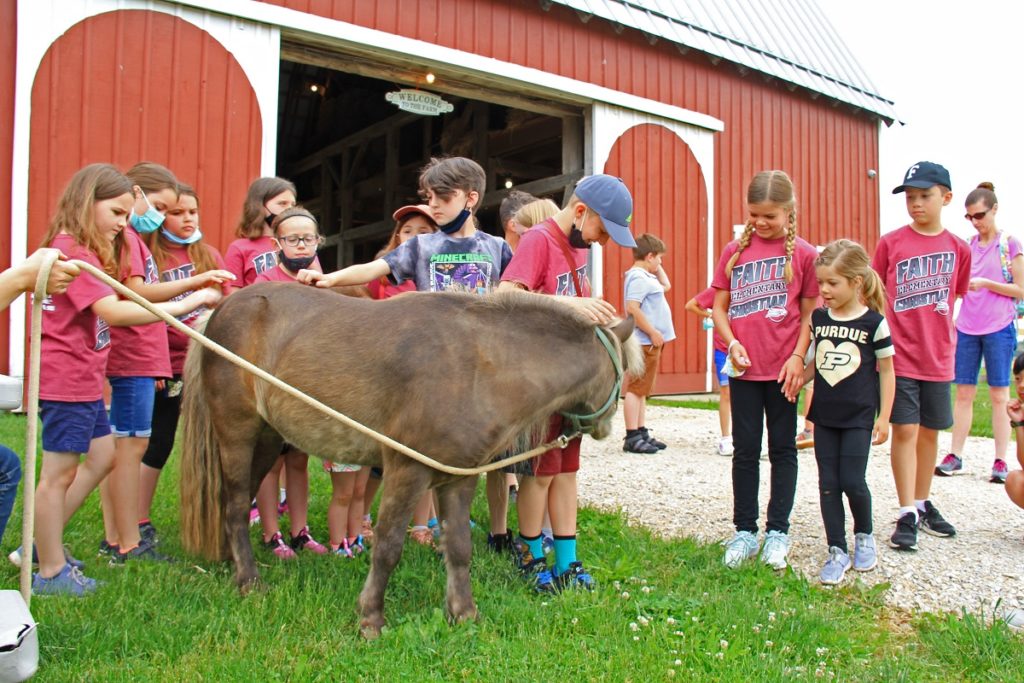
Students from Faith Christian School pet a mini horse at the Farm at Prophetstown.
“We learned what it was like to farm and do chores in the 1920s. It was so much fun to see all the really cool antiques! Then we went outside to look at all the animals and learn how they helped make things for people who lived in the farmhouse,” said Landrey, one of the students.
The third graders laughed as the turkeys and chickens followed them around the farm. They smiled and exclaimed how much they loved petting the pigs and barn cats. One girl lovingly hugged the mini horse.
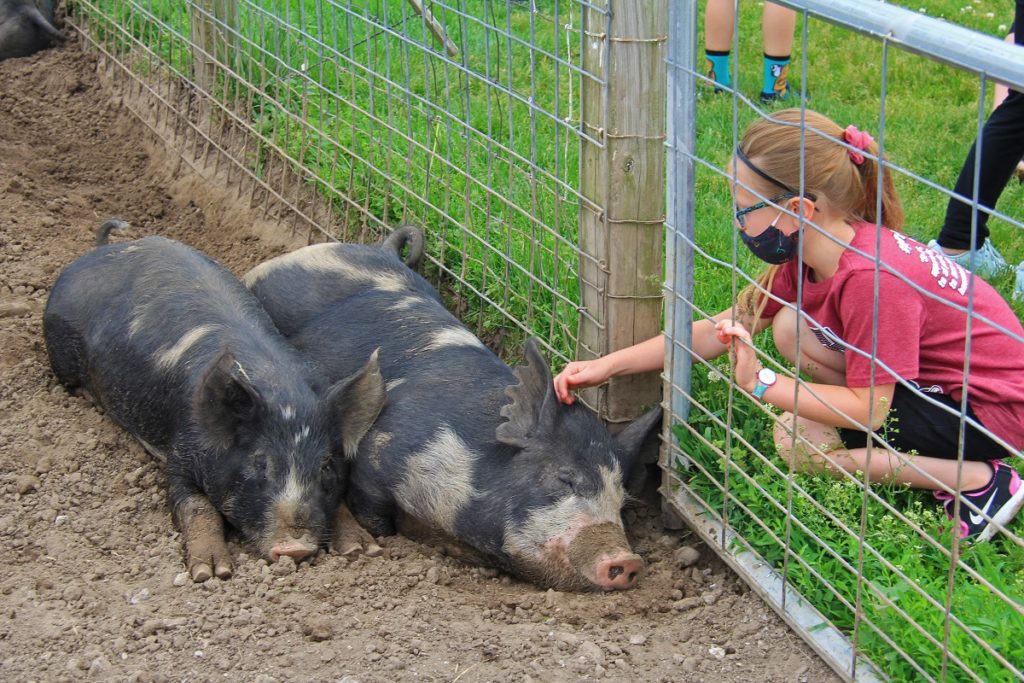
A third grader pets a napping pig at the Farm at Prophetstown.
After their sack lunches and outdoor playtime at one of the park’s playgrounds, the students learned about the significance of this area to many Native Americans.
Jenna Parks, interpretive naturalist at Prophetstown State Park, gave a presentation about the cultural history of the region. They learned that the park was named for a Native American village that was established in 1808 by Tecumseh and his brother, Tenskwatawa (The Prophet). Tecumseh and Tenskwatawa were Shawnee, and they were able to form a settlement that consisted of more than 14 tribes to form Prophetstown where they developed trade and commerce and raised families.
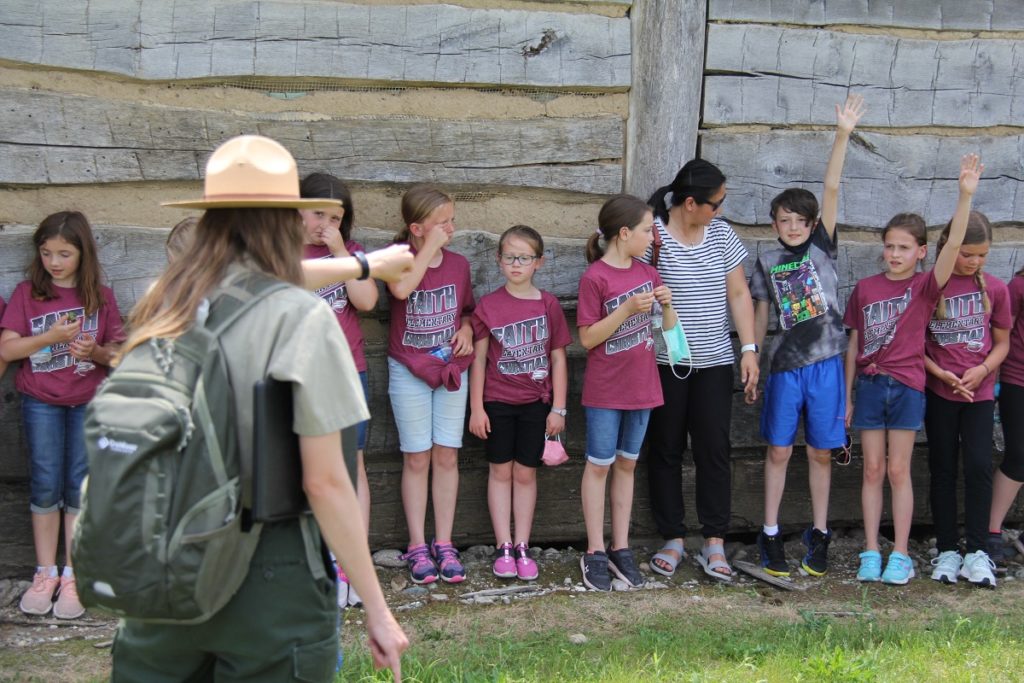
Students learn about the Native American village at Prophetstown State Park.
After the history lesson, Parks and her seasonal intern led the students through a prairie trail. They learned about the habitat that wildlife depend on in the area, including prairie, forest, savanna and wetlands. They saw birds flying overhead, and students touched and inspected the prairie grasses and wildflowers that grew tall around them. They even saw and learned about a ground squirrel as it scampered across the trail.
Once they reached the village, the third graders explored the types of homes and buildings the Native Americans of the Prophetstown settlement might have built, like a medicine lodge. Inside the lodge, they asked questions about herbs that hung to dry along the wall. The kids smelled the herbs and learned what ailments they treated and how we still use natural resources today to create many of the medicines we use.
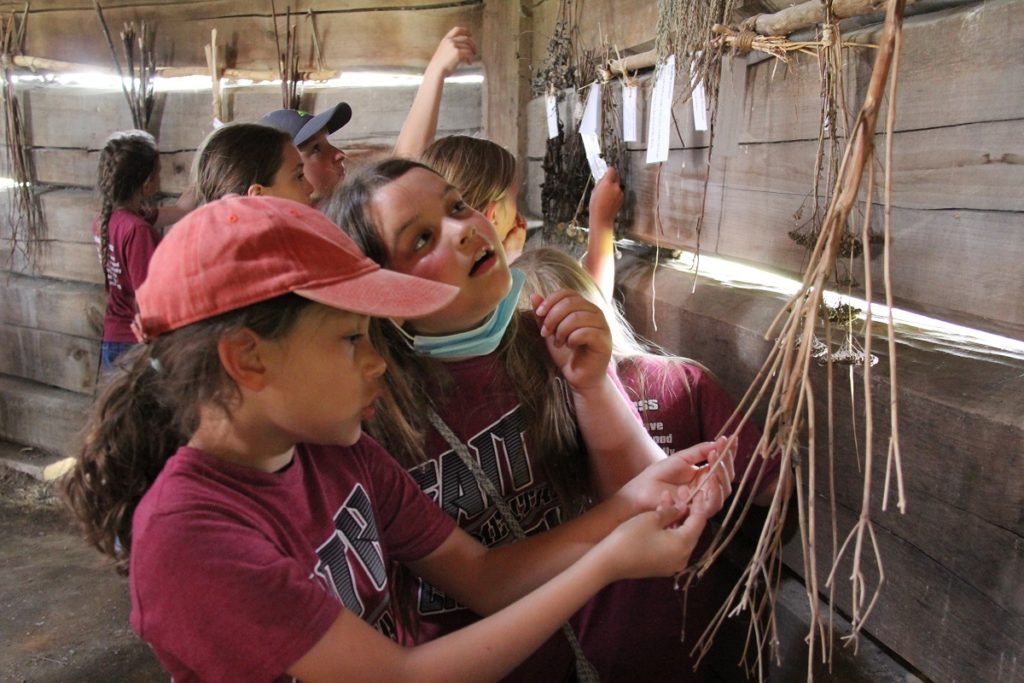
Third graders examine medicinal plants once used by Native Americans in the region.
Throughout the day, the students’ hands flew up to ask questions. They were engaged, curious and used all their senses. They learned about history in a setting that made the past feel more palpable. They also learned how the natural resources around them are important for present and future generations.
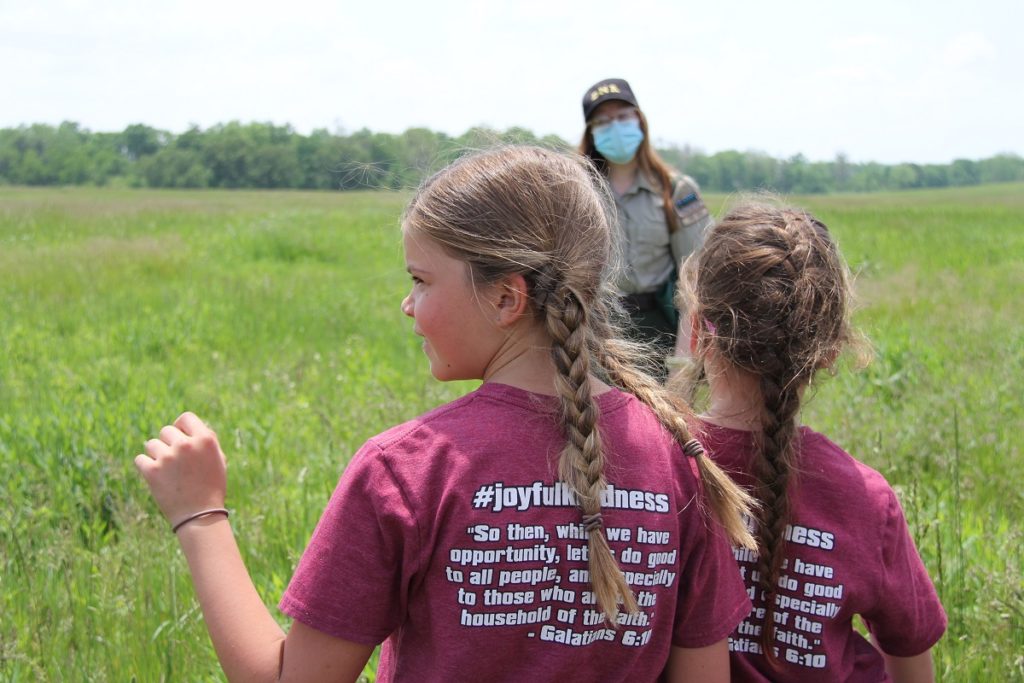
Students explore prairie habitat.
Experiences like these are what inspire children to become future conservationists, ecologists, biologists and researchers. It inspires them to grow into adults that understand the importance of our relationship with our natural world. Education and inspiration go hand-in-hand, and the next John Muir or Jane Goodall will be a child who was encouraged to explore the outdoors just like the students from Faith Christian School.
The Discover the Outdoors grant has provided outdoor field trip opportunities to more than 200 schools in Indiana. Please make a donation today to help make outdoor adventures possible for students across Indiana. If you are a teacher interested in applying for a field trip grant, you can learn how here. Grant applications are accepted May 1-June 30 each year for the upcoming academic year.
